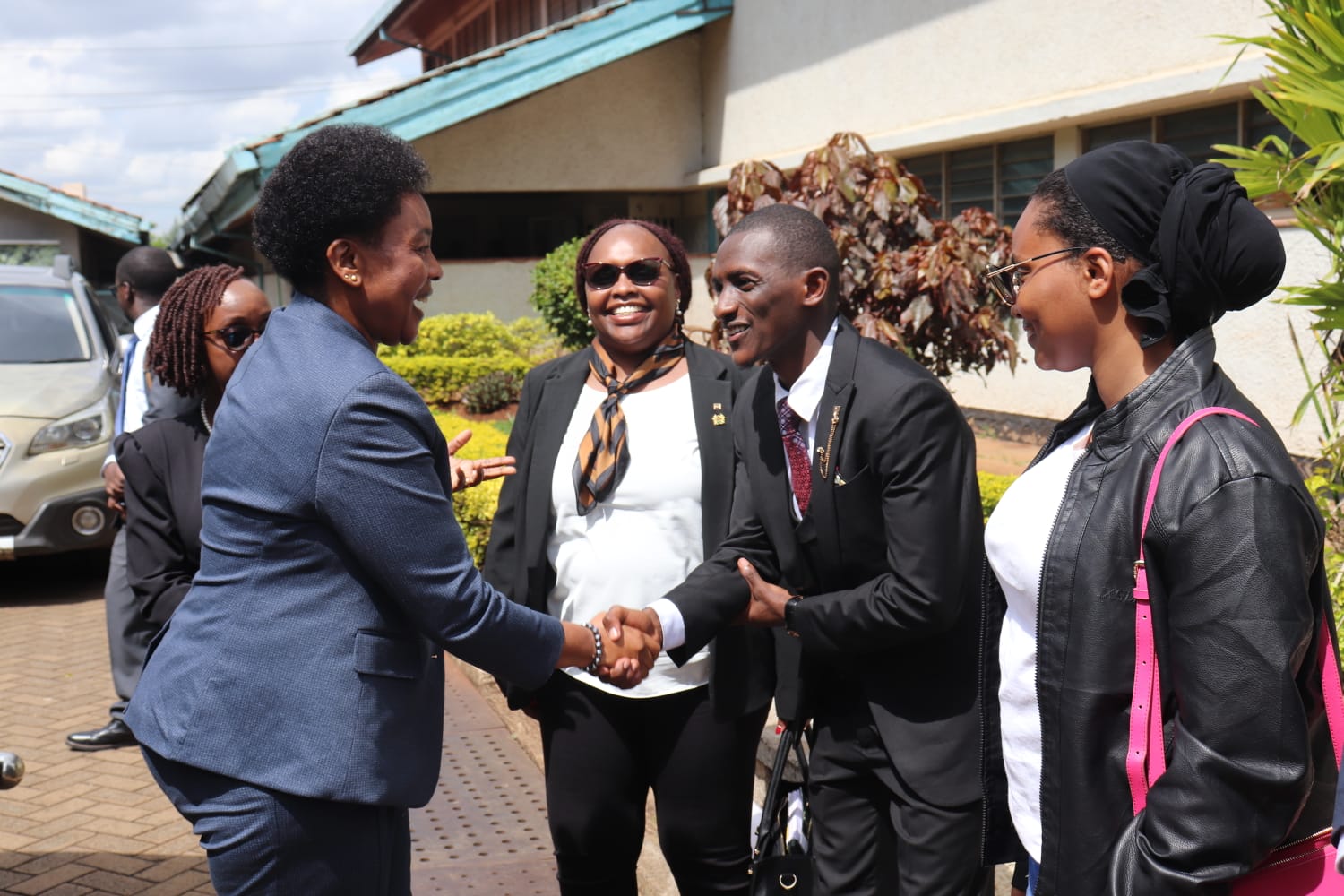Deputy Chief Justice and Vice President of the Supreme Court of Kenya, Philomena Mwilu has advised young lawyers in the making to be patient, work hard, and be honest and not let their success not be defined by the amount of money in the bank.
“You must make a living, but don’t let this be the foundation of your ethos as a lawyer. Your success will be measured by how you have kept fidelity to your principles, not by the content of your bank account or your popularity or notoriety. Take your time. Learn, grow, improve…money will come,” she said.
She implored the young people to “Discard ‘pop’ attitude; this fast-food get rich quick instant gratification. Avoid the shortcuts. It’s ok to be ambitious and to have high expectations, but these must be measured with patience, honesty, hard work, and fortitude.
“Hard work and integrity will always be the foundation of a comfortable, dignified, and fulfilled life,” said Mwilu.
The DCJ was delivering the keynote address on Friday during a Public Lecture organized by the University of Nairobi Law Students Professional Association at Parklands Campus on the topic: Navigating the Legal Profession: Pathways to Excellence.
The Deputy Chief Justice reminded the students of Law that they are called to be justice champions in their communities as lawyers and advocates and their responsibility goes beyond clients who pay for their services.
“Access to justice through our courts cannot be the preserve of the few; our courts and tribunals must be accessible to everyone and you have a pivotal and challenging role in this regard,” she said, urging them to “think of legal clinics and legal aid; pro se litigants, pauper briefs and pro bono services; litigation in the public interest,” said Mwilu.
She continued: “Further, access to justice is not the sole preserve of courts and tribunals. There is a plurality of mechanisms through which the majority of Kenyans access justice. As lawyers, you must define a purposive, facilitative, supportive, and promotive space within these multiple justice avenues.”
Mwilu told the lawyers and advocates in the making that they must live and breathe constitutionalism, “the moral compass for you as jurists is well defined in the Constitution.
“The national values and principles of governance under Art. 10, the provisions on Leadership and Integrity under Chapter 6, the provisions on the exercise of judicial authority under Art.159, and the values and principles of public service under Art.232 are ineluctable minimums for your character as jurists,” she said.
Mwilu further expounded on the broad view of justice beyond the courtroom that the Judiciary has adopted, “under the Judiciary’s Social Transformation through Access to Justice (STAJ) institutional blueprint, as she urged judges and magistrates not to see themselves merely as adjudicators but as justice promoters, connectors and facilitators
The DCJ asked the students to remain adaptive and innovative beyond school life saying… “Your teachers and lecturers will educate you by amplifying, directing, and honing the utility of your ideas and strengths. I believe such an approach makes you contextually grounded; enables you to remain malleable to changing circumstances, adaptive and innovative in facing future challenges and exploiting opportunities; and, most importantly, produces, not legal professional automatons, but lawyers equipped to return to the law its emancipatory purpose.”





